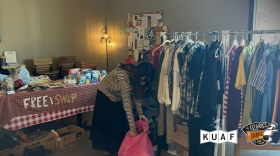
WASHINGTON— U.S. Senators John Boozman and Tom Cotton—along with Congressmen Rick Crawford, French Hill, Steve Womack and Bruce Westerman—applauded the U.S. Department of Housing and Urban Development (HUD) for awarding federal funds to municipalities across Arkansas, as well as the Arkansas Economic Development Commission (AEDC), to help facilitate the coronavirus response in our communities.
The grants, totaling over $23.6 million, come from the Coronavirus Aid, Relief, and Economic Security (CARES) Act, which recently became law with the support of the Arkansas delegation.
The majority of the funds come from HUD’s Community Development Block Grant (CDBG) program, which can be used by Arkansas communities to make improvements to public facilities that are necessary to the COVID-19 response, support businesses to increase economic development and provide increased public services during the outbreak.
The CARES Act allocated $5 billion to the CDBG program to help communities prevent, prepare for and respond to the coronavirus. This is the first round of CDBG grants released and additional funding will be made available on a rolling basis.
“Our communities need help addressing the severe, complex struggles presented by the coronavirus pandemic. We appreciate how quickly Secretary Ben Carson and his team at HUD have acted to award these grants. These funds are critical to overcoming the challenges our communities are facing,” the delegation said.
The following Arkansas municipalities received CDBG grants:
Conway - $269,734
Fayetteville - $436,285
Fort Smith - $530,840
Hot Springs - $254,743
Jacksonville - $123,984
Jonesboro - $362,524
Little Rock - $879,049, along with an additional $81,216 from the Housing Opportunities for Persons with AIDS (HOPWA) program.
North Little Rock - $406,388
Pine Bluff - $411,412
Rogers - $270,024
Springdale - $478,318
Texarkana - $165,006
West Memphis - $186,531
In addition to the grants made directly to municipalities, HUD awarded AEDC over $10.8 million in CDBG funds to distribute, as well as over $7.8 million from the Emergency Solutions Grant program and $133,620 in HOPWA funding.
-30-
Copyright 2020 KASU





